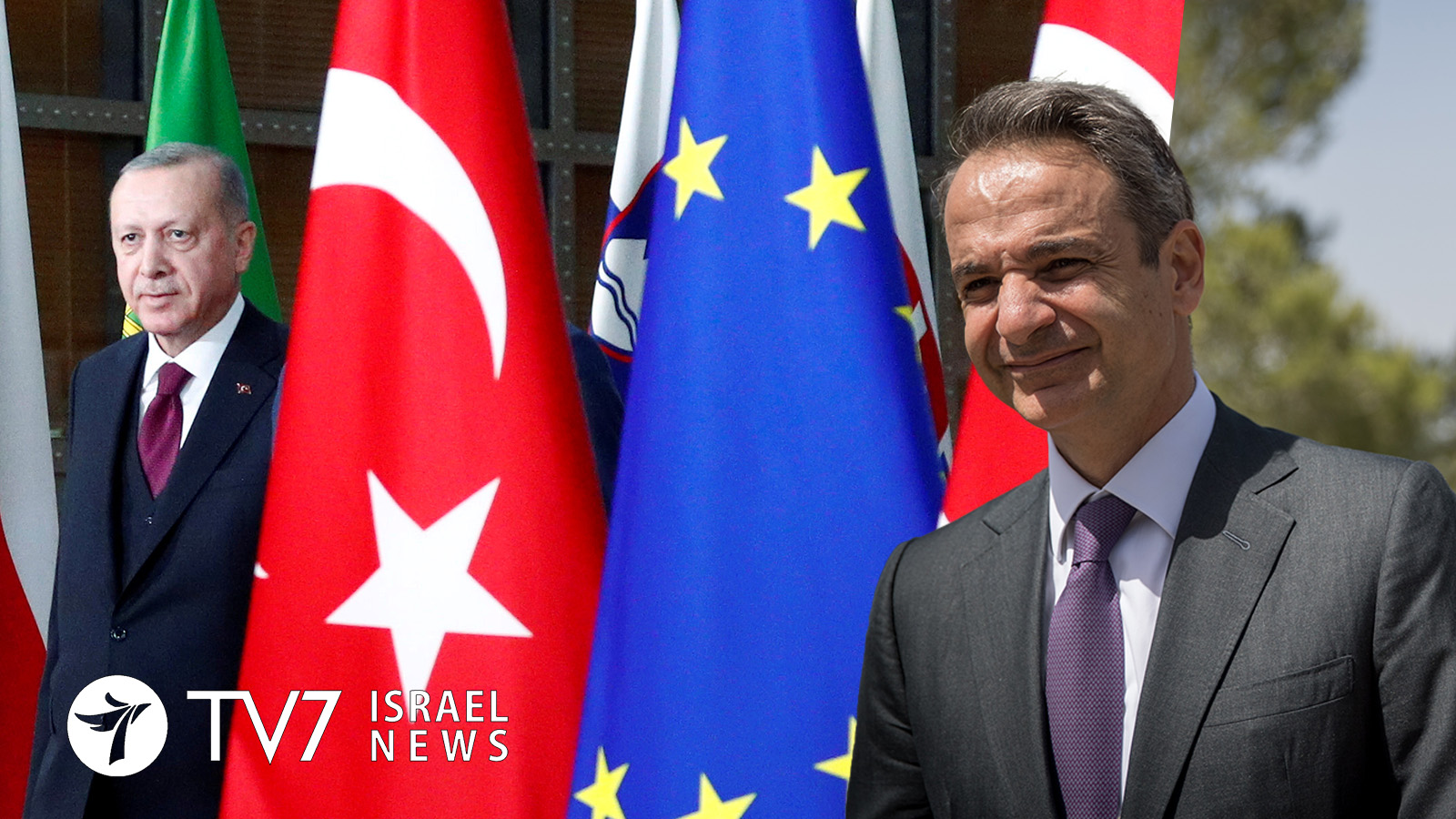Greek Prime Minister Kyriakos Mitsotakis has repeated his nation’s readiness to negotiate its dispute over maritime rights in the East Mediterranean Sea with Turkey.
“Mutual respect and trust are the basic conditions required for good un-neighborly relations,” said Mitsotakis during a joint press conference in Athens alongside visiting-European Union Council President Charles Michel.
The Greek leader went on to stress that, “as far as we are concerned – it’s what I have said so many times – that the end of provocations means the beginning of talks, so if we have tangible proof and this (proof) is continued, we are ready to start immediately – I stress that, immediately – exploratory talks.”
“Turkey still has time – ahead of and after the (EU) summit – to continue the first encouraging step of disengaging itself from this crisis and de-escalating in the Aegean and Mediterranean,” added Mitsotakis, saying, “there must be continuity and consistency for our dialogue to bloom, and Greece is always open to that.”
The comments come despite Ankara’s repeated claim that the recent withdrawal of its controversial Oruç Reis seismic research vessel from disputed waters was solely for routine, pre-scheduled maintenance.
For his part, EU Council President Michel reiterated Europe’s staunch support of Greece and Cyprus. “The predictability of our external relations is not only a matter for Greece or Cyprus, it’s a matter for the European Union,” he said, “And here, I want to formally, solemnly, offer the solidarity of the European Union, because we believe that all member-states deserve respect. And that is also why I am here today, to affirm this message without any ambiguity.”
“And I’m also here to see how – just as we have started to do, and in the same way we have worked together before, in an intense, constructive and precise way – we can progress. And this progress is on two fronts: on the one hand, we are ready to be firm and strict in making sure the principles which are essential for us and our members states – Greece and Cyprus – are respected; and on the other hand we are ready to open our arms to see that a positive agenda is possible, if there is a common willingness to respect the principles which are, in our eyes, extremely essential. This will be a key topic discussed at the EU summit at the next Council meeting on September 24 and 25,” added the EU Council President.
Turkey meanwhile does not apparently believe the EU would stand by the two island nations if the situation flares into an open conflict regardless of the repeated declarations of support.
“Please look what Greece has been doing around the islands. Who they trust when taking these actions are those who promised to support them and stand with them, they are wandering around islands with their corvettes and Zodiacs. You are doing it wrong, do not go into this direction otherwise you will be left all alone,” charged Turkish President Recep Tayyip Erdoğan.
Despite these assertions, made during an Istanbul commemoration of Turkey’s 1980 coup, France’s proactive military and political support to Greece and Cyprus is evidently frustrating the Turkish leader. He attempted to snub to French President Emmanuel Macron by resisting utterance of his name.
“I do not want to mention him by name, but I have to because he is messing with me,” Erdoğan proclaimed, insisting “He is saying ‘our problem is not with Turkish people but with Erdoğan.’”
The Turkish leader concluded ominously, Mr. Macron – I assure you – you will continue to have a lot more problems with me.”
In related developments, Turkey’s partner and co-signatory of a Mediterranean maritime deal is set to step down from power. Libyan Premier Fayed al-Sarraj of the Western and Turkish-backed Government of National Accord (GNA) announced on state television that he intends to tender his resignation next month.
Sarraj said he is leaving office over what he described as growing internal and external-conspiracies that obstructed the ability of his Tripoli-based government to lead or secure peace in the war-torn country.
“The political and social landscape has been and remains polarized, which led to all peaceful attempts of reaching a peaceful solution that can allow us to end the bloodshed and protect our national fiber, that is threatened to rip even further, to these attempts being tiresome and extremely difficult,” said the GNA leader.
He said he will “hand over my duties to the next executive authority no later than the end of October,” and expressed hope that “the dialogue committee will complete its work and choose a new presidential council and prime minister.”
Sarraj’s departure of is expected to inflame infighting among the rival tribes and factions which support his government; consequently also threatening the maritime accord he signed with Erdoğan that initiated tensions with Greece over the Eastern Mediterranean.
